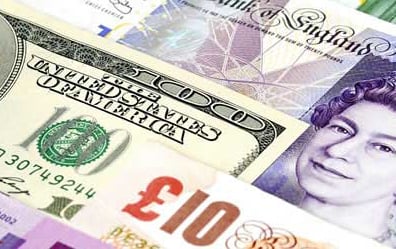The USD has received complete punishment in the currency markets due to the complete lack of correlation when it comes to consistent job creation resulting in consumer expenditure in retail sales, with weakness in this sector having continued for another month. It just makes no sense at all that despite consistently strong job creation, consumer confidence touching milestone highs, and budgets being eased following the decline in prices at the pumps, that consumers are still not spending.
This will alarm the Federal Reserve and continue to make them hesitant when it comes to even mentioning raising interest rates. Over the past couple of days alone we have received both more weak retail sales and a downward revision to just over 80,000 for March’s NFP, even the most optimism of traders can’t be realistically expecting an interest rate hike in June.
Will the USD weakness continue for longer? Keep an eye on the Initial Jobless Claims data this afternoon for the answer. Whether the USD can at least begin recovering its losses would be dependent on whether initial jobless claims can continue to impress. Consistently strong employment reports have been the shining light for the US economy over the previous year, which has in turn contributed to all this continual interest rate hype. Outside of job creation, there is still a great deal of progress that needs to be achieved for the US economy and further weak retail sales data provided the markets with a reminder of this.
It won’t take long for doubts to begin appearing over whether the Federal Reserve will swerve away from its repeated commitment to begin raising interest rates this year, but I still maintain that we are on track for a September rate increase. The pace of monetary tightening was always going to be slow, and no one should be surprised about this. In the meantime, the USD remains vulnerable to further weakness if economic data continues to push back interest rate expectations. Both currencies and commodities will benefit from this. Personally, I think that emerging market currencies will benefit the most from interest rate doubts, mainly because the bounce in the price of WTI will provide support and these economies will no longer be so concerned over capital outflows.
Advertisement
If you look at the currency markets, the Euro, Pound, Canadian Dollar and Australian Dollar are all trading at monthly highs. The list doesn’t end there and I think the USD vulnerability we are encountering has provided a reminder to everything how the market sentiment can change very suddenly if the USD moves in either direction. The EURUSD has now touched 1.1430, which is quite close to when the European Central Bank (ECB) launched QE and that represented a new era of currency weakness for a bank that was no stranger to easing monetary policy. Mario Draghi is set to speak later today, and he will likely repeat his satisfaction with the recent news that we are beginning to notice the ECB stimulus measures having a positive impact on the EU economy.
The GBPUSD is teasing an upside move to 1.58, and it will probably make it as long as this USD weakness can continue just a little longer. Bank of England (BoE) Governor Carney attempted to disappoint the Pound bulls by repeating some remaining concerns over the UK economy during the latest BoE inflation report, but the bulls can still exploit USD vulnerability. Aside from reoccurring inflation concerns, the UK economy continues to perform robustly on a consistent basis and its currency will remain attractive because of this. What Carney tried to do in my opinion is slowdown the Pound rally, because a hawkish speaking BoE Governor would have sent the bulls into a frenzy and inevitably led to the Cable returning to 1.60.
After the US retail sales data, indices encountered losses and this sentiment has carried into today’s European session. Why? The markets are realizing more and more that they were overhyping the previous economic data, and a less performing US economy will also weigh on global sentiment. Indices do remain vulnerable to further downside pressures, but investors also like cheap capital and because central banks are under pressure to maintain monetary easing, indices will probably remain attractive in the mid-term. If Draghi sounds upbeat on the EU economy, European markets will probably move higher.
Advertisement
Follow Jameel on Twitter @Jameel_FXTM
For more information please visit: Forex Time
Add a comment







